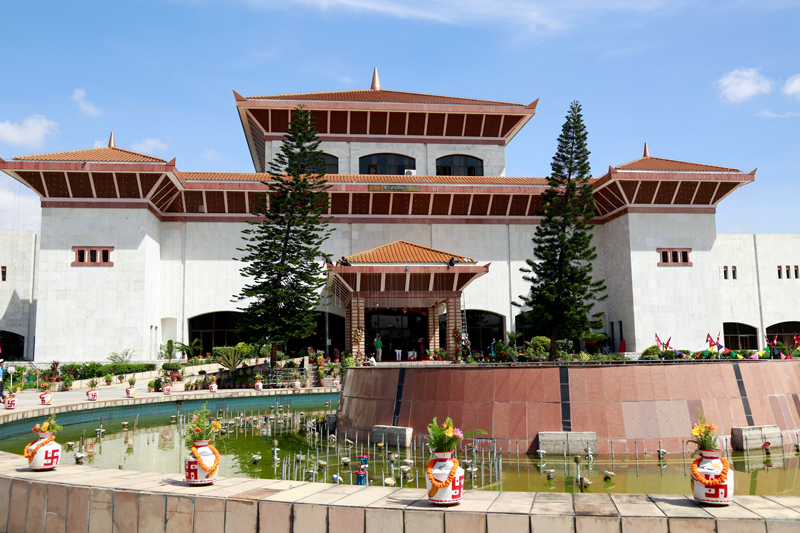New laws come into effect tomorrow
New laws come into effect tomorrow
Published: 08:25 am Aug 16, 2018

Kathmandu, August 15 The Civil Code Act and Criminal Code Act, which intend to herald sweeping reforms in Nepal’s legal system, will come into force on Friday. These two codes will govern the conduct of everybody – rich and poor, alike – replacing the 55-year-old General Code. Lawmaker Radhe Shyam Adhikari, who was involved in drafting the two laws, said they had incorporated modern concepts and principles of laws and had also accepted extra territorial jurisdiction on some issues. “These laws are as important as the constitution and in some cases even more than the constitution because they touch upon the lives of every citizen,” he added. The civil code has incorporated provisions of private intentional law for the first time stating, among other things, that if a divorce between Nepali citizens and between a Nepali citizen and a foreigner takes place in a foreign country, then it can get legal validity in Nepal if the divorce process is based on the laws of that particular country. It gives a divorced woman the right to use the property she will receive from her former husband even if she remarries, which is not the case under the existing law. The new law also allows a woman the right to use her father’s surname, the surname of her mother or husband or both surnames. It has provisions relating to usufruct, whereby a person can give his/her property to somebody who can use it as his/her own property but cannot change the substance of the property without the consent of the owner. The new law stipulates that an owner of an animal will be held responsible if the animal inflicts harm to others. It gives extraterritorial jurisdiction to courts whereby if a crime is committed against a ship registered in Nepal then the courts can try the accused if s/he is found within Nepal. It stipulates that the punishment of offenders who are sentenced to jail for one year or less can be suspended if the court deems it appropriate to do so. The new penal code sets the duration of life term up to 25 years. There is provision of plea bargain — a theory widely used in the American criminal justice system — as a general rule for the first time in Nepal’s criminal justice system. An accused can get punishment waiver of up to 50 per cent if s/he confesses to her/his crimes and also spills the beans on other offenders or the main offender or the organised group involved in the crime. The court will conduct hearing on the quantum of punishment within a month after the crime is determined. Penal code also stipulates that aggravating and mitigating circumstances/factors should be taken into account in sentencing. Punishments
- Life term for aggravated murder (such as killing somebody after hijacking or exploding a plane), genocide, poisoning death, murder and aggravated rape and genocide
- Jail sentence not exceeding seven years and a fine not exceeding Rs 70,000 for raising arms against a friendly country of Nepal or issuing a war threat, or making attempts of war or rebellion against a friendly country
- Jail term not exceeding 10 years and a fine not exceeding Rs 100,000 for transmitting HIV and Hepatitis B to anybody
- Jail term not exceeding five years and a fine not exceeding Rs 50,000 for producing, selling and exporting adulterated or substandard food and beverage
- Jail term not exceeding three months and a fine not exceeding Rs 5,000 for scribbling or writing on banknotes
- Jail term up to three months and a fine up to Rs 5,000 for animal and bird cruelty
